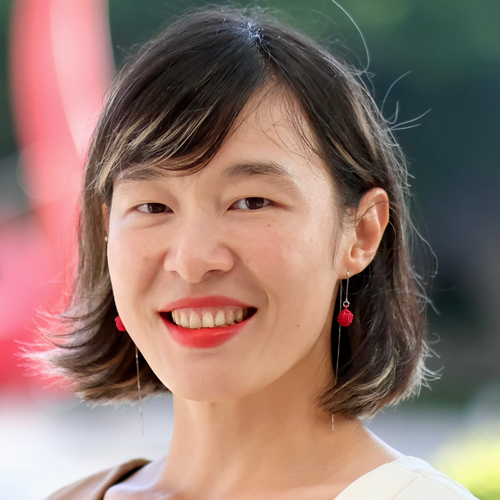Member Spotlight: Angela Wu, PhD
Angela Wu, PhD
The Hong Kong University of Science and Technology, Hong Kong
Hometown
Xi’An, China
Current Residence
Hong Kong, China
Graduate Degree
PhD Bioengineering, Stanford University
Current Position
Assistant Professor, Division of Life Science & Department of Chemical and Biological Engineering, The Hong Kong University of Science and Technology
-
The current work of my research group revolves around development of new technologies to facilitate biological discovery: 1) single-cell genomics methodologies and bioinformatics tools; 2) microfluidic platforms for organoid engineering and disease modelling. These research areas may appear too diverse but I love the way that the ideas and methodologies from different projects cross-pollinate. I am very passionate about interdisciplinary research, and working on diverse topics allows me to interact with other researchers from widely different backgrounds, which is stimulating and inspiring.
-
Technology is one of the cornerstones of modern life sciences research. For example, without the invention of DNA sequencing, we would never know how differences in our genes lead to our uniqueness but also sometimes lead to disease. Like DNA sequencing, the technologies invented in my lab help biologists to measure things they previously couldn’t. With new single-cell technologies, we investigate with improved resolution how stem cells perform their function, and observe the gradient of changes they undergo to generate different mature cell types. With new platforms for organoid engineering, we create mini-brains that can realistically mimic brain pathologies, allowing more accurate drug testing for diseases.
-
I was raised in a family of scientists, doctors, and engineers. I have childhood memories of my grandfather teaching me about physics and chemistry as we played together with wooden blocks, or when he repaired the radio. Perhaps these very early experiences have made me genuinely very curious about the natural world, and how things work. To be quite honest, I did not enjoy biology at first; but the more I learned, the unanswered questions in biology inspired my curiosity even more. Bioengineering was the perfect discipline for me.
-
Working with amazing people, every day! And of course, when one of our new technologies works as intended for the first time, it is super exciting.
-
In my opinion, doing interdisciplinary work requires a collaborative approach and very open attitude, while also being able to learn new things very quickly. Acquisition of many very diverse skill sets and understanding each one deeply enough is necessary for integrating them into something new. Most of my students have to know how to do molecular biology, computational analysis, and nanofabrication. The learning curve can be frustrating at times, so you have to genuinely enjoy learning new things. But it is rewarding at the end; you not only end up more creative and independent, you also become adept at seeking help from other experts. I think being in a collaborative culture and ecosystem makes this process easier.
-
All of my collaborators past and present have been important sources of inspiration for me; after all, I am just a tool maker. It is they who show me what tools are needed and what their biological questions are. It is always fun and inspiring to engage in discussions with them about their science. In addition, my PhD supervisor Stephen Quake has had the greatest influence on my scientific thinking and problem solving approach.
-
I enjoy being active and hermit-ing in a cyclic fashion, much like a stem cell with quiescent and proliferative states… I run regularly (both road and trail) and also enjoy road biking. During hermit cycles, I enjoy being a couch potato, quietly watching TV or playing video games.
-
For me to answer the question “where is your hometown”, you’d have to define whether that means where I was born, where I grew up, where I have lived the longest, or where my citizenship is. Before college I attended seven different schools on three different continents, so it’s hard to decide!
-
The network of people! Through the annual meetings, I have met so many distinguished and talented scientists; talking and forming collaborations with them has been a privilege. In addition, as a member of the Early Career Scientists Committee (ECSC), I have had the pleasure of working closely with the other amazing ECSC members and it has been fantastic.

